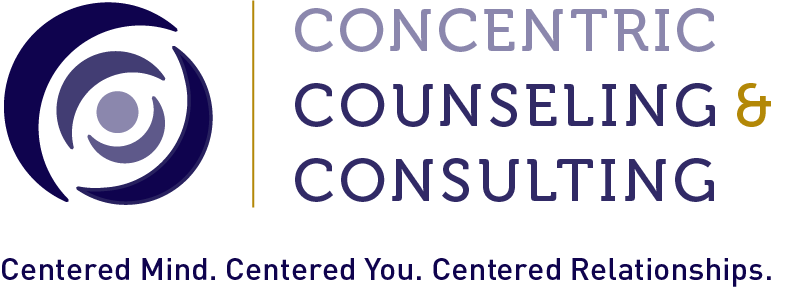Response to Johann Tari's TED Talk: What's Really Wrong Here
/By Concentric Counselor Jennifer Larson, LCPC, NCC
Admittedly I do not carve enough time to watch or listen to TED talks. One of my clients referenced how she will listen to them particularly when she’s cooking dinner. My dinner routine typically entails listening to music in the background, catching glimpses of my son playing a game or doing his homework, or practicing mindfulness to be present when making dinner in effort to de-clutter my head space and take a reprieve from the perpetual tasks of multi-tasking.
Listening to a TED talk while cooking dinner never dawned on me, and I liked the idea. So, this past Monday I popped onto TED and scanned the topics. Everything you think you know about addiction is wrong immediately piqued my interest.
It jumped out, well because various forms of addiction is all so familiar to me due to my childhood upbringing and how addiction permeated the fabric of my family’s life as well as I am a psychotherapist who helps people to heal and work through their own addictions. Plus, I was so curious to listen given the title was loaded with terms such as “EVERYTHING you think you know” and “about addiction is WRONG” that I wondered if this somehow applied to my personal experiences and professional knowledge of addictions. We cannot possible know everything, and I became curious to know if there is information that breaks through the past and current trends about addictions.
In his TED talk, Johann Tari, a British journalist, speaks about his own relationship to his family members who struggle with addiction, specifically substances. His thirst for wanting to have a better understanding of what contributes or causes addiction drove him to find the answers. His journey covers speaking with various people from all walks of life, spanning different cultures.
As I listen to his voyage, I am struck by his journey as he spoke with a street user and a Vancouver Professor of Psychology who conducted experiments with rats in isolation and within a community of rats called “Rat Park” to referencing the Vietnam War and Portuguese approach to decriminalizing drugs.
In the end, Johann Tari argues it is a lack of human connections that contribute to and maintain addictions. Conversely, deeper, human individual and societal connections can allay (or treat if you will) addictions.
While I most certainly agree of the importance of human connections being vital to our biosocial-cognitive-psychological development, overall well-being, and yes, people who suffer from addictions, I have also come to recognize understanding the causes of and treating addictions is far more complex that just forming individual and societal human bonds. Also, I would like to add we know earlier childhood attachment and social connections play a significant role when understanding addiction, so everything we know about addiction is wrong isn’t entirely accurate.
Let’s face it, humans and addictions are complex. We do not know everything there is to understand about the various forms of addictions spanning different social environments and cultures, but we do know quite a bit, and understanding the etiology and treatment of addiction goes beyond just forming human connections.
Without going into nitty-gritty details, there are many models of addiction. A few to highlight are the disease model of addiction which looks at the biology, neurobiology, and genetics of an individual as well as his or her social environment. Some understand addiction by assessing a person’s earlier childhood and developmental attachment with their caregivers, the inherent chemical properties or pharmacology of a substance, and social evolution of groups of people over time (e.g. socio-economic status). The public health model informs us to look at addiction by understanding the person and his or her vulnerability, the substance and its inherent properties, the vector (who brings the substance in and its incentives), and the social environment that allows and supports the use of substance. And, the bio-psych-social-spiritual (BPSS) model takes into account the interconnections and interplay of the biology, psychology, social, and spiritual aspects of a person.
What about process addictions where there is no substance or drug, and subsequently no inherent properties to even consider? Process addictions are an addiction to an activity or person, such as gambling, spending, Internet, or co-dependency. And, I have not even touched up treatment and recovery of addiction models which by the way vary depending on who you talk to, the substance or process, the various recovery approaches including 12-step models, and what best fits the individual person within his or her family and community systems.
So, what started off as a little diversion from my usual dinner preparation routine has prompted me to inform others that we do know a thing or two about addiction and it’s more than just forming human connections. Some of us may know inherently or through acumen that individual, family, and community connections are necessary and important for our survival, evolution, success, and even recovery, but please know understanding the causes and treatment of addiction go beyond human connections. Now, that is something we do know.







